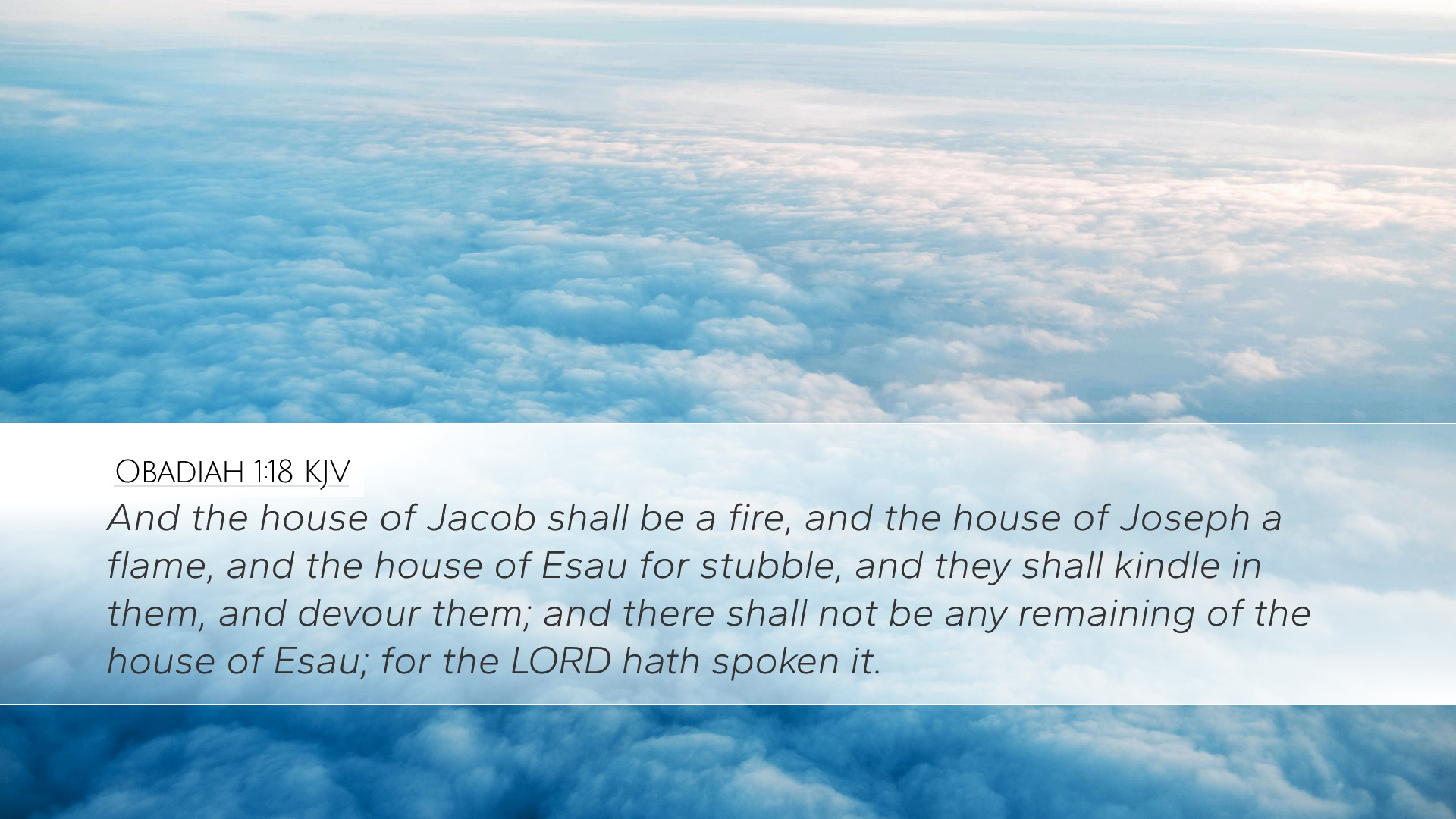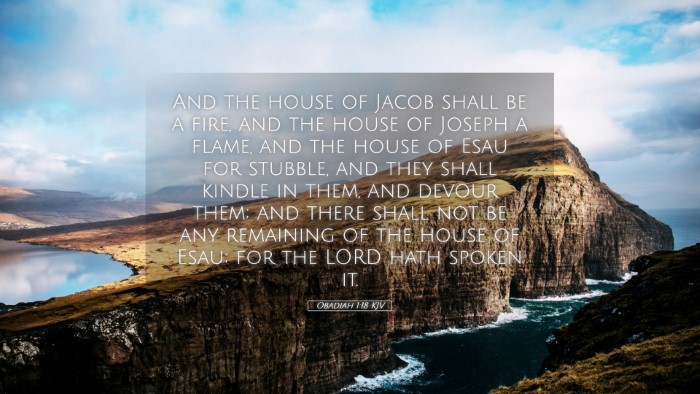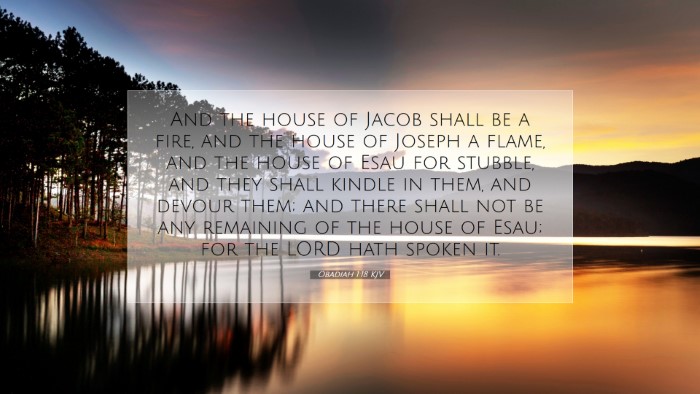Commentary on Obadiah 1:18
Verse Context: Obadiah is the shortest book in the Old Testament, consisting of a single chapter. It is primarily a prophecy concerning the nation of Edom and its impending destruction due to pride and violence against Israel. In verse 18, the focus is on the fate of Edom, contrasting it with the deliverance of Israel.
Overview of Obadiah 1:18
“And the house of Jacob shall be a fire, and the house of Joseph a flame, and the house of Esau for stubble, and they shall kindle in them, and devour them; and there shall not be any remaining of the house of Esau; for the Lord hath spoken it.”
Interpretations and Insights
The verse provides a striking metaphorical contrast between the houses of Jacob and Joseph, symbolizing the northern and southern kingdoms of Israel, and the house of Esau, representing Edom. The imagery illustrates the fiery nature of Israel's judgment upon Edom.
-
Matthew Henry’s Insight:
Henry emphasizes the divine justice in God's dealings with nations. He notes that the house of Jacob being likened to a fire represents God's holy and powerful people, while the house of Esau, as stubble, suggests utter destruction. Henry interprets this as a clear demonstration of God's sovereignty and righteousness, fulfilling His promises and prophecies concerning the fate of Edom.
-
Albert Barnes’ Perspective:
Barnes elaborates on the metaphor of fire and stubble, noting that fire consumes stubble effortlessly. He reflects on the inevitability of Edom's downfall, stating that there will be no remnants left to represent Esau's descendants. This judgment underscores the principle of divine recompense for sin and hostility against God's people, where the oppressors are subjected to total devastation.
-
Adam Clarke's Commentary:
Clarke highlights the prophetic nature of this verse, affirming that the complete annihilation of the house of Esau signifies a historical event that would be fulfilled in the eyes of Israel. He draws parallels to the ongoing struggle between Jacob and Esau, illustrating this conflict is not merely a historical tale but a theological foundation for understanding God's ultimate justice.
Theological Implications
This verse serves as a promising declaration of hope for the people of Israel while simultaneously acting as a dire warning to nations that oppose God's chosen people. The complete destruction of Edom is indicative of broader themes in Scripture, addressing God's covenant fidelity, the consequences of pride, and the inevitable triumph of God's will over human schemes.
1. Divine Judgment:
The harsh words directed at Edom reflect the seriousness of divine judgment. Both Henry and Barnes illustrate this by connecting the imagery of fire to the consuming nature of God's wrath against those who oppose His will.
2. Assurance to Israel:
The promise of protection and victory for Jacob and Joseph serves as a source of comfort and assurance for the Israelites. In times of distress, they are reminded that God ultimately reigns over the affairs of nations, maintaining His covenant with Abraham, Isaac, and Jacob.
3. Spiritual Reflection:
For pastors and theologians, this verse invites reflection on the current spiritual state of nations and communities. It raises questions about pride, oppression, and the need for humility before God. The stark contrast between the destructive pride of Edom and the righteous fervor of Jacob prompts a call to personal and communal repentance.
Conclusion
Obadiah 1:18 serves as a pivotal moment in understanding the dynamics of God’s justice and mercy. By drawing from the profound insights of respected commentators like Matthew Henry, Albert Barnes, and Adam Clarke, we come to appreciate the detailed nuances in the text that resonate both historically and theologically. The assurance of Israel's ultimate triumph and the dire fate of Edom reinforce the message that God is faithful to His Word, fulfilling His promises to His people, while also executing justice against their adversaries.
This passage not only encompasses historical events but also serves as a timeless reminder of God's sovereignty, the seriousness of spiritual warfare, and the profound implications of human choices in the light of divine will.


